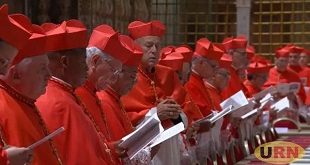
Beijing, China | AFP | Chinese leader Xi Jinping urged US President Donald Trump on Saturday to avoid rhetoric that could inflame tensions with North Korea as an escalating war of words raised global alarm.
Xi made the plea in a phone call hours after Trump ramped up his warnings to Pyongyang, saying the Stalinist regime would “truly regret” taking hostile action against the United States.
The White House said in a statement that the two leaders “agreed North Korea must stop provocative and escalatory behaviour” and that they are both committed to the denuclearisation of the peninsula.
But the Chinese foreign ministry said Xi urged Trump to avoid “words and deeds” that would “exacerbate” the already-tense situation, exercise restraint and seek a political settlement.
Trump has been engaged all week in verbal sparring with the North over its weapons and missile programmes, as US media reported Pyongyang has successfully miniaturised a nuclear warhead.
The Republican billionaire has progressively ramped up the tone throughout the week and on Friday declared that the US military is “locked and loaded.”
In a call with Guam Governor Eddie Calvo on Friday, Trump said the US military is prepared to “ensure the safety and security of the people of Guam” in response to Pyongyang’s plans to launch missiles towards the Pacific territory.
Japanese media said Tokyo was deploying its Patriot missile defence system following Pyongyang’s threat to fire ballistic missiles over the country towards Guam.
– ‘Fire and fury’ –
In another move that could further fan the flames, satellite photos posted by defence expert Joseph Bermudez suggested that North Korea could be preparing for fresh submarine-based ballistic missile tests.
Trump had earlier brandished a threat of unleashing “fire and fury” on Pyongyang, then noted Thursday maybe that statement “wasn’t tough enough”. On Friday, the president said the military was “locked and loaded, should North Korea act unwisely”.
China, North Korea’s biggest ally and trade partner, has been voicing concern at the angry exchanges and a state-run newspaper suggested that Beijing should stay neutral if Pyongyang struck the US first.

Previously accused by Trump of not doing enough to rein in the authoritarian regime, China voted in favour of a series of wide-sweeping UN Security Council sanctions against North Korea last weekend.
According to the Chinese foreign ministry, Trump told Xi over the phone that he “fully understands China’s role in the nuclear issue in the Korean Peninsula”. Trump is expected to visit China later this year.
A commentary published in the North Korean state-run newspaper Minju Joson called the warnings from Trump and “other riffraff of the US… the last-ditch efforts and hysteric fit of those who are in the grip of despair” over the “tragic doom” of the “American empire”.
The sabre-rattling has sparked worldwide concerns that a miscalculation by either side could trigger a catastrophic conflict on the Korean Peninsula.
A chorus of international voices — including Russia, Germany, France and the UK — have urged restraint in the crisis, while Seoul expressed appreciation for Xi and Trump’s phone call Saturday.
“We hope today’s phone conversation between the two leaders will provide a momentum to defuse the highest-ever tension and to shift into a new phase of resolving the issue,” said a statement from South Korean President Moon Jae-in’s office.
– Moscow ‘alarmed’ –
Russia’s Foreign Minister Sergei Lavrov said Moscow was “very alarmed” at Trump’s tough talk, and said Washington should take the first step toward cooling tensions.
“When a fight has nearly broken out, the first step away from the dangerous threshold should be taken by the side that is stronger and smarter,” Lavrov said.
German Chancellor Angela Merkel said diplomacy was the answer.
“Germany will very intensively take part in the options for resolution that are not military but I consider a verbal escalation to be the wrong response,” she said.
French President Emmanuel Macron echoed her call for talks, saying the international community needed to work to get Pyongyang to “resume the path of dialogue without conditions”.
Meanwhile British Foreign Secretary Boris Johnson blamed Pyongyang for the stand-off, saying on Twitter that the “North Korean regime is the cause of this problem and they must fix it”.
Nearly a week ago, the UN Security Council unanimously passed fresh sanctions against Pyongyang over its weapons programme, including export bans, a new punishment that could cost North Korea $1 billion a year.
“This is clearly a time for all the parties to focus on how to de-escalate and lower the tensions,” said the spokesman for UN Secretary General Antonio Guterres.
Tensions on the peninsula tend to increase when Seoul and Washington launch major military joint exercises, and the next one, Ulchi Freedom Guardian, is set to kick off around August 21.
– ‘Tragedy of war’ –
US Defense Secretary Jim Mattis appeared intent Thursday on easing the tension, describing the prospect of war as “catastrophic” and saying diplomacy remained the priority.
Relations between Washington and Pyongyang have been tense for months, in the wake of the North’s repeated missile tests, including two successful intercontinental ballistic missile (ICBM) test launches in July that are believed to have brought much of the US mainland within range.
North Korea raised hackles in the United States when it announced a detailed plan to send four missiles over Japan and towards Guam, an island territory of some 165,000 people, where some 6,000 US soldiers are based.
 The Independent Uganda: You get the Truth we Pay the Price
The Independent Uganda: You get the Truth we Pay the Price



